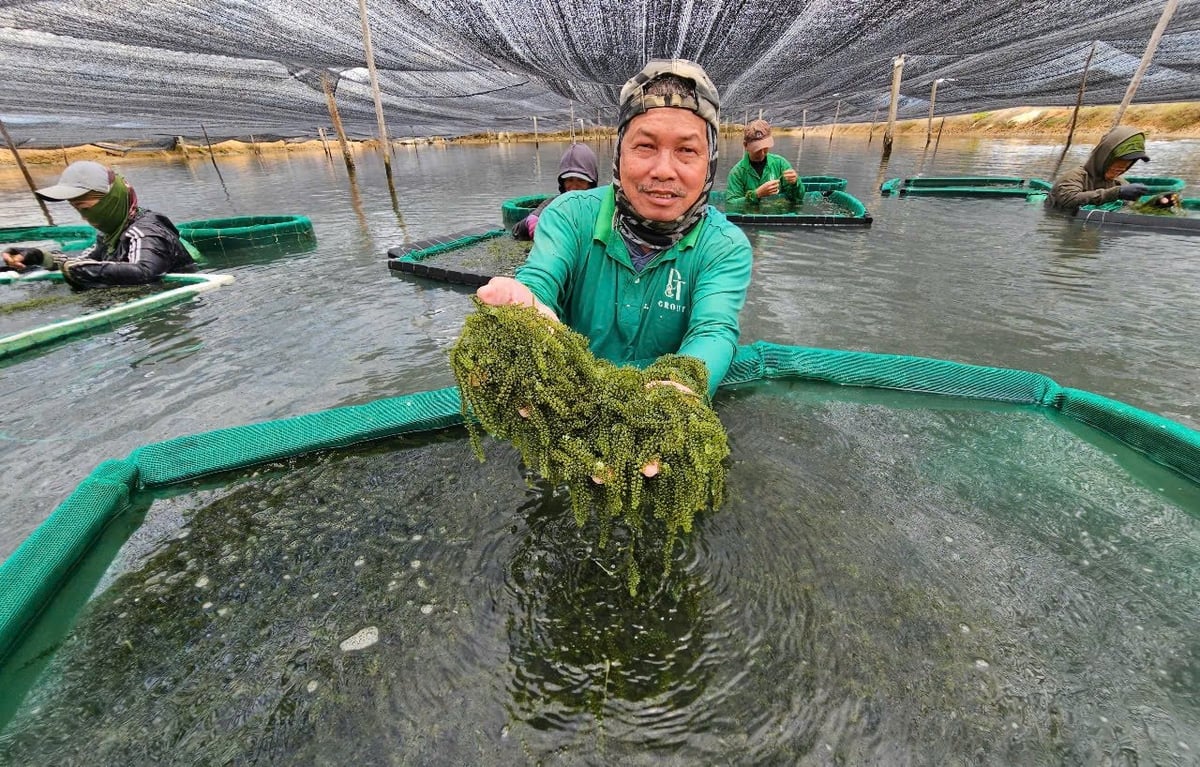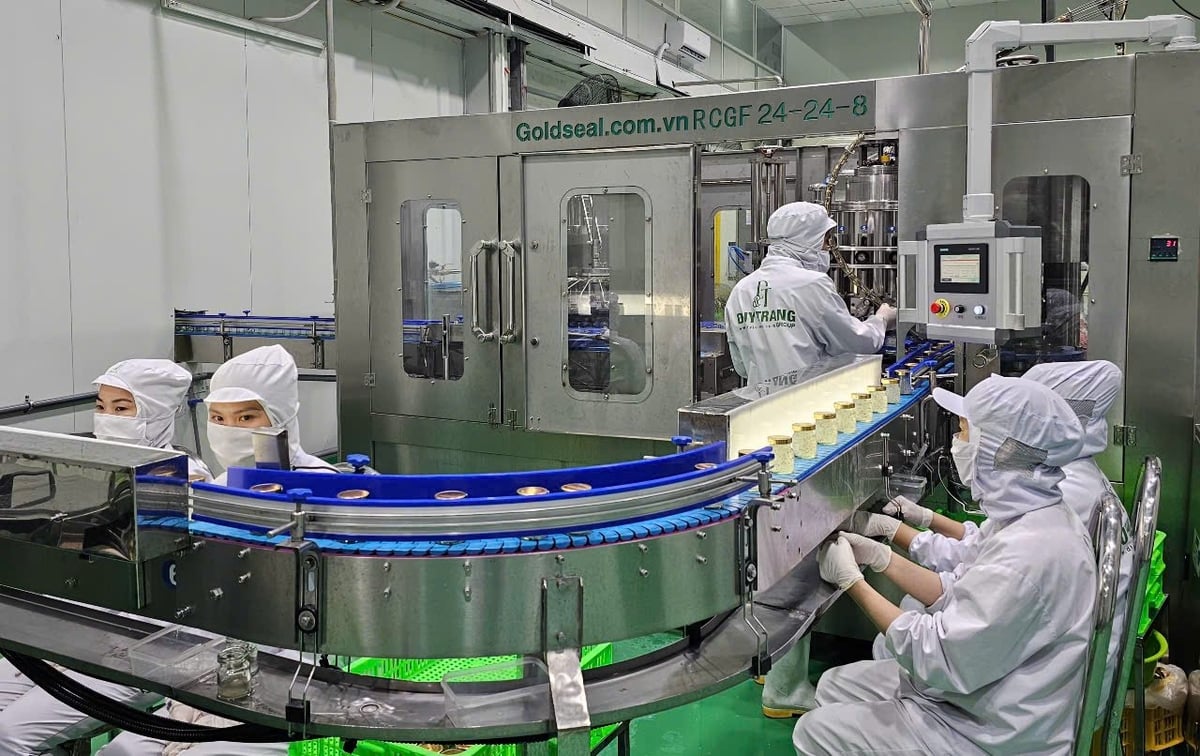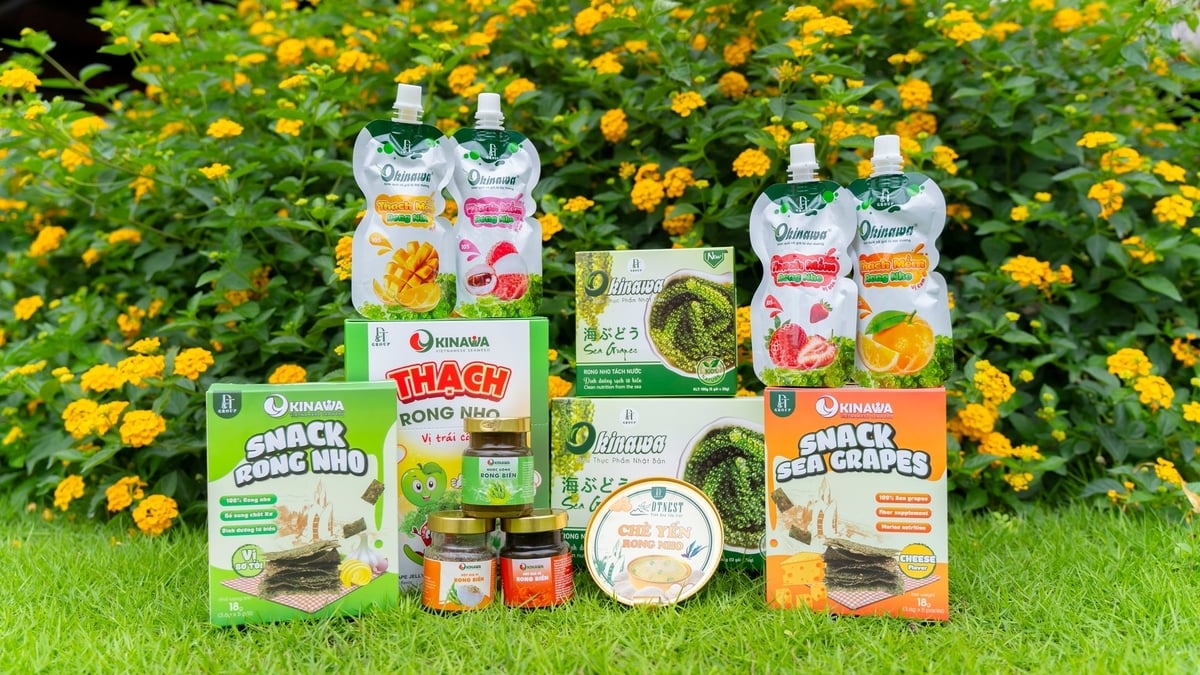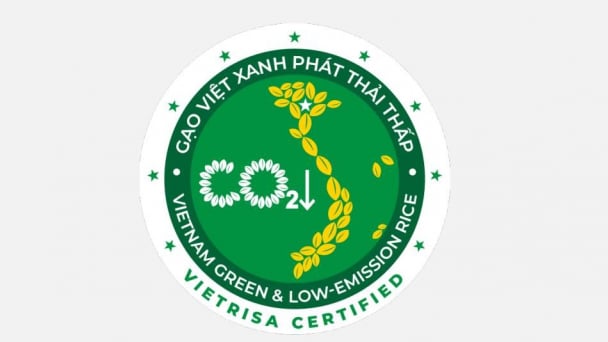May 15, 2025 | 14:45 GMT +7
May 15, 2025 | 14:45 GMT +7
Hotline: 0913.378.918
May 15, 2025 | 14:45 GMT +7
Hotline: 0913.378.918
Seaweed in general, and specifically sea grapes, are a group of lower plants that live in saline water bodies along coastal areas and distant islands.

Mr. Nguyen Quang Duy, Chairman of the Board and CEO of DT Khanh Hoa seaweed joint stock company (DT Group). Photo: KS.
Sea grapes are often referred to as the "green caviar" of Japan due to their shape, which resembles fish eggs, but they are green in color and grow in clusters in seawater, much like grapes.
Studies have shown that sea grapes are rich in essential vitamins such as A, C, E, and K, as well as a variety of important minerals. In several Asian countries, including Japan and Taiwan, sea grapes are not only popular but also considered a healthy algae due to their numerous health benefits.
With nearly 15 years of experience in the seaweed farming industry, Mr. Nguyen Quang Duy, Chairman of the Board and CEO of DT Khanh Hoa Seaweed joint stock company (DT Group) in Khanh Hoa province, explained that the coastal provinces in the South Central region of Vietnam, with their long shorelines, deep and clean waters, temperatures ranging from 25-28°C, salinity levels of 30-35 parts per thousand, and calm waters, provide the perfect environment for growing a variety of seaweed species, including sea grapes, which are economically valuable.
At present, several localities have developed seaweed farming zones that meet the needs of companies engaged in processing and exporting. DT Group, for instance, has established an 80-hectare seaweed farming area, which was officially recognized by the Vietnam Records Organization in 2020 as the largest area for farming and harvesting Japanese sea grapes in Vietnam.

Recently, DT Group has partnered with many seaweed farmers in the central coastal provinces. Photo: KS.
Of the total area, about 80% is linked with 70 farming households in the provinces of Khanh Hoa, Phu Yen, and Ninh Thuan, who have switched from shrimp and sea snail farming to growing sea grapes due to previous losses. The farmers who partner with DT Group to grow sea grapes earn an average profit of 10-15 million VND per hectare per month after costs. Many farmers cultivate 2-3 hectares, earning between 40-60 million VND each month. Additionally, growing and harvesting sea grapes provide jobs for 200 local workers.
According to Mr. Duy, until now, Vietnam's sea grapes have primarily been exported as raw materials (fresh seaweed), with little focus on deep processing to enhance the value chain. DT Group has always been concerned about the low value derived from selling fresh products.
To address this situation, from 2023 to 2024, DT Group boldly invested in a processing factory covering over 3 hectares, equipped with modern machinery and equipment, with a total investment cost of nearly 350 billion VND at the Dac Loc Industrial Park, Vinh Phuong Commune, Nha Trang City.
The factory has a processing capacity of 4 million products per month and provides jobs for hundreds of local workers. In addition to investing in machinery and equipment, DT Group has collaborated with various ministries, research institutes, and scientists to develop value-added products from seaweed.

DT Group has invested in a modern processing factory. Photo: KS.
From January 2023 to June 2025, as part of the Ministry-level project "Application of biotechnology to produce value-added products from economic seaweed", the Research Institute for Marine Fisheries has supported DT Group in improving product quality and diversifying new products made from seaweed.
To date, DT Group has developed several high-quality, deep-processed products, including sea grape drinks, seaweed seasoning sauce, instant seaweed seasoning powder, and bird's nest essence with seaweed.
"The instant seaweed seasoning powder has a similar quality to Japan's rice seasoning, but the production cost is lower because the raw materials, such as seaweed and other vegetables, are readily available in the country. The seaweed seasoning sauce is convenient for spreading on bread or eating with plain rice and porridge. As for the sea grape drink, we utilize fresh, high-quality sea grape clusters that do not meet the export size standards and naturally ferment them into a nutritious drink. Consumers can drink it directly without the fishy taste of seaweed", Mr. Duy shared. He also mentioned that in addition to these products, DT Group has developed many other seaweed-based products, such as dried seaweed, seaweed snacks, seaweed jelly, seaweed soup, bird's nest sea grape jelly, sea grape essence, sea grape bird's nest tea, sea grape milk bird's nest, sea grape mango smoothies, and tuna-flavored sea grape sauce.
The development of value-added seaweed products, according to Mr. Duy, will help DT Group meet the demand of both domestic and international markets in the near future once the necessary legal procedures are completed.

Value-added seaweed products from DT Group. Photo: KS.
"Last year, we had the opportunity to collaborate with several Japanese and Chinese companies. Both sides have agreed to sign a partnership contract to distribute value-added seaweed products to the vast markets of China and Japan", shared the leadership of DT Group. They also expressed their desire that in the near future, the products of DT Group, as well as those from Vietnam in general, will be available on store shelves worldwide.
As part of DT Group's development strategy for 2025 and beyond, the company plans to continue investing in new factories, expanding its operations, and building long-term partnerships with major enterprises to promote the export of its products.
In addition, the company will focus on researching and developing even more advanced processing techniques to better meet the diverse needs of both domestic and international markets, ensuring that they can serve the specific demands of customers in different regions effectively.
According to Mr. Nguyen Quang Duy, Chairman of the Board of Directors and CEO of DT Group, in 2025, the company will continue to expand its supply chain by strengthening its partnerships with seaweed farmers. The company plans to increase the cultivation area by approximately 30-40%, with a primary focus on the provinces of Phu Yen, Khanh Hoa, and Ninh Thuan.
$ 1 = VND 25.730 - Source: Vietcombank.
Translated by Phuong Linh

(VAN) Veterinary training should focus on quality, not just quantity. Veterinarians also need more options to pursue specialized training.

(VAN) The veterinary industry needs to be viewed objectively and further invested in to properly demonstrate its role and importance in the new context.

(VAN) The number of veterinarians graduating each year is not enough to meet actual needs, hence a difficult problem for the growing livestock industry.

(VAN) The strategic partnership between Cambodia, the Philippines, Vietnam, and CGIAR ensures that innovative solutions effectively address national priorities for food system development.

(VAN) This was affirmed by the UK Minister of State at the Department for Environment, Food and Rural Affairs during a working session with Deputy Minister Tran Thanh Nam on May 13.

(VAN) On May 13, the Ministry of Agriculture and Environment, in coordination with the Embassy of Vietnam in the United Kingdom, organized a seminar titled 'Connecting trade in Vietnam-UK agricultural, forestry, and fishery products'.

(VAN) The launch of the Vietnam green and low-emission rice brand is a positive signal for both businesses and farmers, marking readiness to reach new heights in the global market.